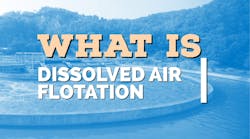The U.S. Environmental Protection Agency (EPA) has announced 120 discretionary grant opportunities to for graduate students students researching water quality on coasts and in estuaries, Targeted News Service has reported.
The grants are open to individuals who are U.S. citizens (or citizens of its territories and possessions) and attend a fully accredited U.S. college or university.
The funding opportunity notice from EPA says, "Applications in this topic are for interests in and investigations on the science of water quality. Proposals in this topic focus on assessing, protecting and restoring surface and ground water quality, aquatic ecosystems, watershed management and source control management. Projects may include, but are not limited to, developing better tools and technologies for assessing, monitoring and managing the impacts of nonpoint source pollution; developing approaches, tools, technologies and models to characterize and manage the combined effects of multiple stressors on aquatic life and water quality; studying harmful algal blooms; adapting management strategies to assess surface and ground water quality; determining causes of impairments; developing sustainable and innovative tools to manage, restore and protect these resources, etc."
The funding opportunity number is EPA-F2009-STAR-D2 (CFDA 66.514), posted Aug. 19 with an application closing date of Oct. 22.
More information is available here.
Source: Targeted News Service, EPA


